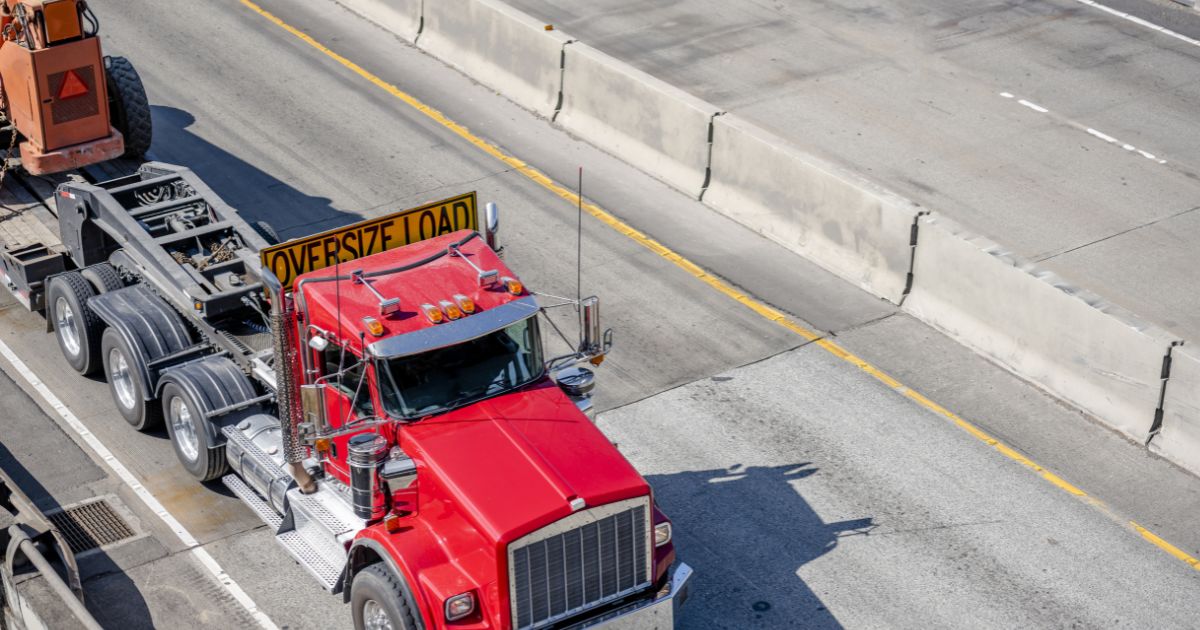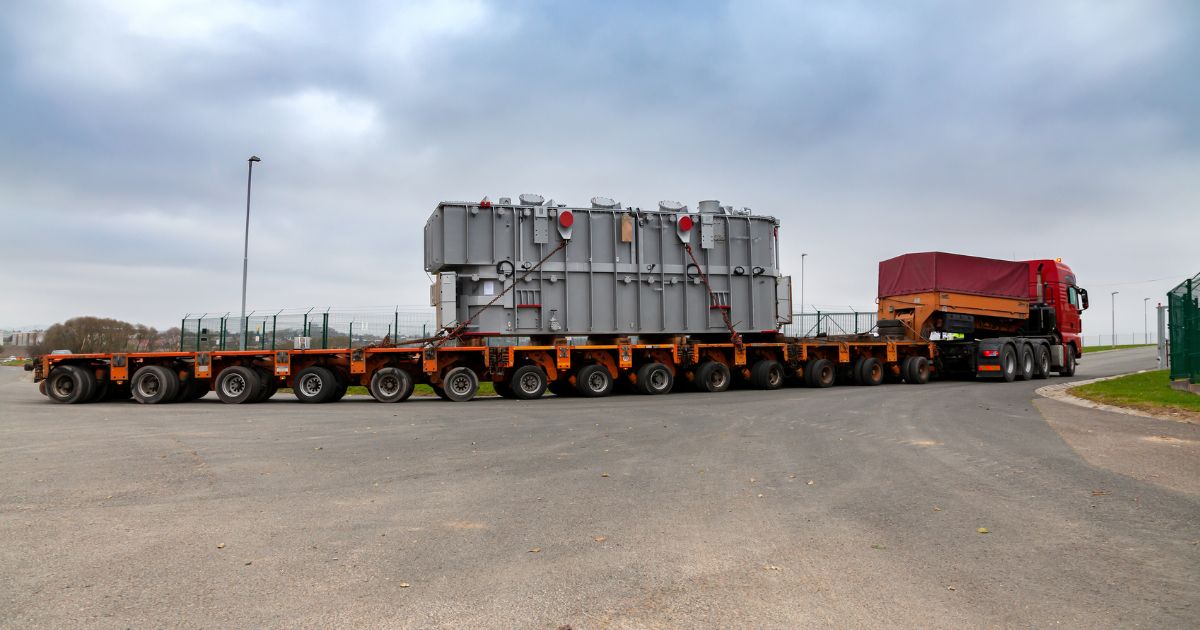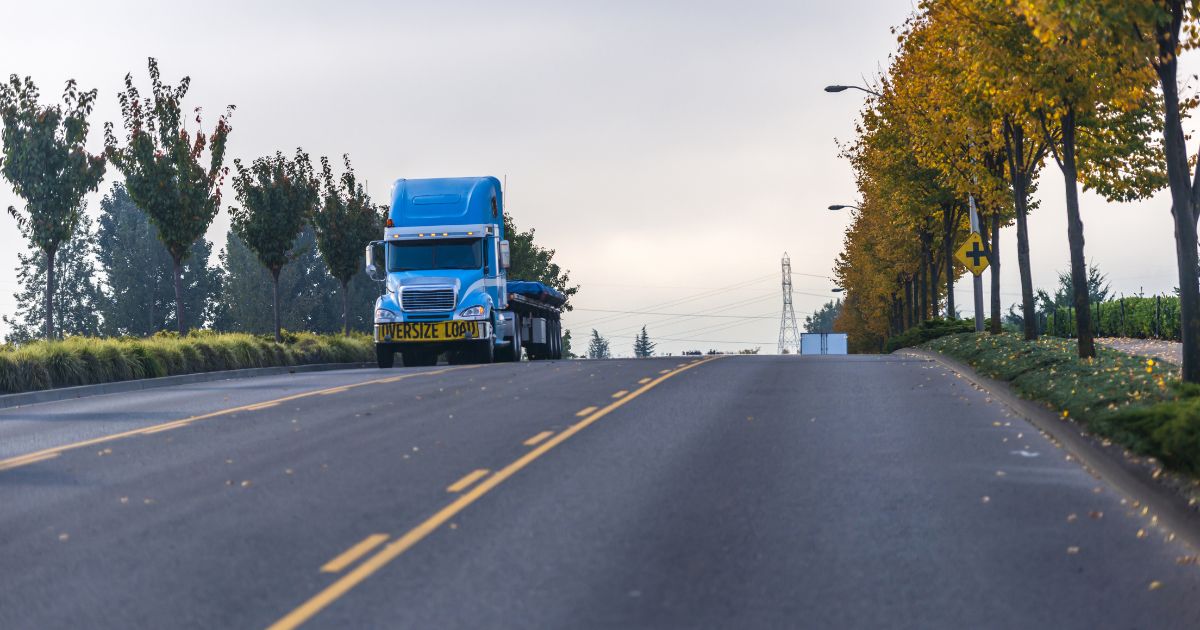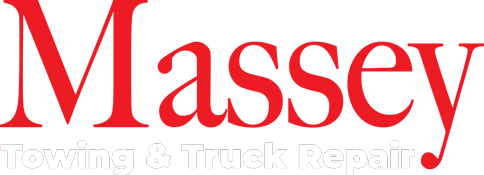Transporting Oversized Loads can be a difficult, complex situation involving several factors to ensure you abide by the regulations and permits required. These regulations and permits vary from state to state and can be dependent on what type of equipment you are transporting. Understanding the importance of following the legalities of transporting oversized loads is crucial.
Heavy Equipment Towing
Machinery like excavators, bulldozers, and cranes as well as industrial vehicles are all considered to be heavy equipment or an oversized load. Towing these loads often requires special accommodations and trucks considering their weight, length, and overall size. Regulations and permits are put in place to keep the driver and others around them safe while transporting oversized loads. Noncompliance with these laws can lead to large fines and legal issues and impose safety hazards. Federal and state-specific laws have been put in place. Complying with the law will ensure a smooth towing process.

Federal Regulations
- Weight Limits: The Federal Highway Administration (FHWA) has set weight limits for commercial vehicles including transporting oversized loads. The maximum weight for a single axle is around 20,000 pounds whereas the gross vehicle weight is 80,000 pounds.
- Vehicle Standards: A tow truck must meet certain safety standards set by the Department of Transportation (DOT). A few things included in this standard are the braking system, lighting, and reflective markings. Depending on the truck, you may need more reflective markings to meet the standards required by DOT.
- Safety Equipment: When towing, safety chains are typically required to prevent the equipment from detaching while being towed in case of a hitch failure. These chains should be secured and fastened tightly to support the weight of the equipment. It is important to inspect these chains frequently and get them replaced if there is any sight of wear and tear or rust.
State Regulations:
Federal regulations should be followed no matter the location you are in but, depending on the state you may need to adjust to abide by further regulations. Each state has its own set of regulations and permits when it comes to transporting oversized loads.
- Permits: Several states require special oversized load permits when towing heavy equipment. These permits can be temporary or renewed annually depending on the situation. These application processes typically require details about the equipment, routes, and weight of the truck and pieces of equipment you may tow.
- Route Restrictions: The states vary geographically from coast to coast. This means certain accommodations are required for the different areas. Certain roads may have restrictions on transporting oversized loads due to brides, road conditions, tunnels, and weight limits. Plan your route in advance so you can prevent running into a restricted oversized towing area.
- Local Regulations: In addition to state and federal law, each town or city may have additional regulations you need to follow. Some areas put in a curfew for transporting oversized loads or have specific requirements when it comes to escort vehicles.

Permits:
There are various types of permits you may need when transporting oversized loads. Understand the difference between each one so you can learn what may be needed for your next journey.
- Overweight Permit: If your load exceeds the standard weight limits, you are required by law to travel with an overweight permit. This may be issued for a single trip or multiple trips within a set timeframe.
- Oversize Permit: Many get “overweight” and “oversized” mixed up. Oversize is when the dimensions of your load exceed standard limits. This can mean either the height, length, width or a mix of these factors exceeds the limits. An oversize permit can come with specific route restrictions and may require the use of escort vehicles.
- Special Use Permits: Certain types of heavy equipment like cranes or specialized machinery may require a special use permit. The application for these permits typically requires details on where the equipment is going and what it is being used for.
Best Practices for Transporting Oversized Loads
Once you have gained an understanding of the regulations around you and acquired the necessary permits, it is essential to implement the best and safest practices when towing.
- Equipment: Make sure you are using the correct truck needed for certain pieces of equipment when towing. Depending on the weight and size of what you are towing, you may need a specific truck to get the job done safely. Using the wrong towing vehicle can lead to accidents and pose serious safety hazards.
- Properly Securing the Load: Before you leave to tow a vehicle or piece of equipment, it is important to check the equipment that secures the load. Make sure there are no clear signs of damage or rust to the straps and chains. Properly secure the laid using these tools to prevent movement during travel.
- Planning Your Route: Identifying any potential road restrictions before your drive can help avoid backtracking and wasting time. Planning your route ahead can help avoid complications and ensure a smooth travel. Using GPS systems made specifically for heavy vehicles can also help provide alternative routes if needed.
- Drive Carefully: The best thing you can do for yourself and other drivers is to be extra cautious on the road. When carrying heavier equipment it takes longer to speed up and slow down. This can become quite dangerous if you are not familiar with it. Keep a safe distance between cars so you have a longer stopping time if necessary. It is also crucial to be aware of the equipment’s swing radius when turning or changing lanes. Your safety is the priority while traveling with oversized loads.

Massey Towing and Truck Repair
Transporting oversized loads requires an understanding of regulations and permits to ensure safety and compliance. Here at Massey Towing and Truck Repair, we specialize in heavy hauling and towing. Our team in the Dallas Fort Worth area knows what is required by law to ensure a safe travel of trucks and equipment. Contact us today for your towing and repair needs.

